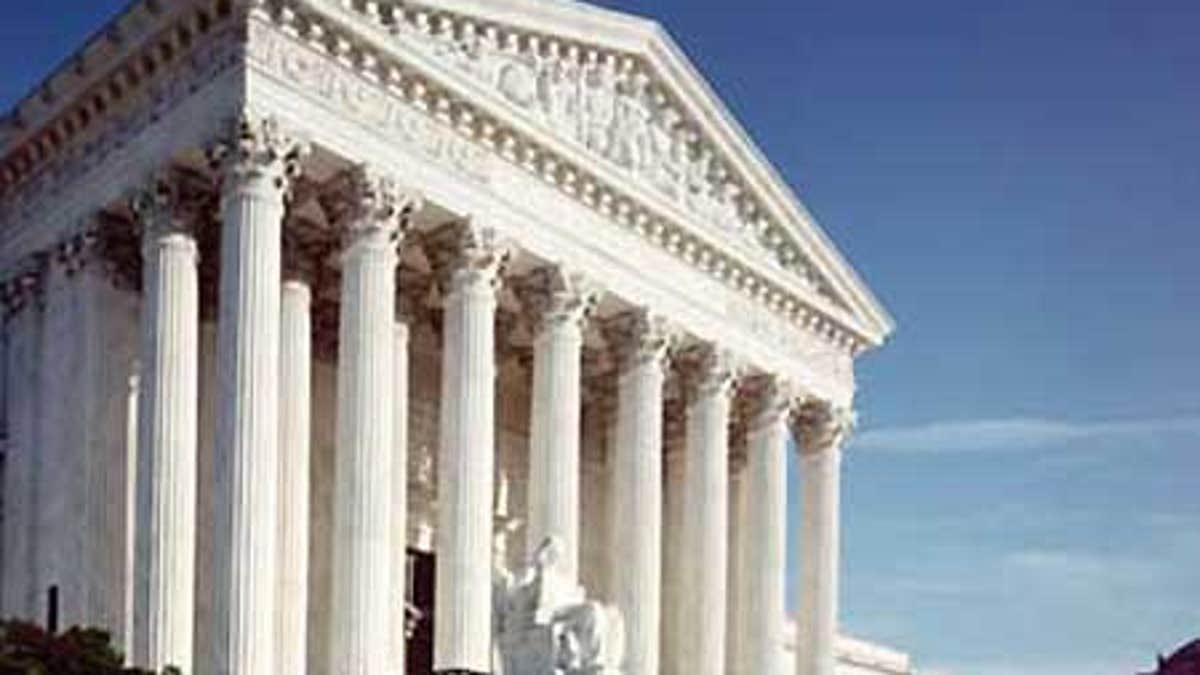
The facade of the United States Supreme Court building (supremecourtus.gov)
WASHINGTON — The software industry holds its breath Monday as the Supreme Court debates a simple question with tremendous ramifications: Can a "process" be eligible for patenting?
Current rules state that methods of doing business can be patented, and software firms live and breathe by such patents. Some of the best-known come from electronic commerce, including Amazon.com's "1-Click" tool for completing online purchases and Priceline.com's "Name Your Own Price" model.
Yet many big companies argue that such patents are too broad and too often used as weapons in costly infringement lawsuits to extract licensing fees.
A ruling that sides with the Patent Office could bar patents on processes and methods of doing business. In a worst-case scenario for the high-tech industry, the ruling could invalidate many existing software patents, or at least make them more difficult to defend in lawsuits. And it could make patents harder to obtain in the future because software is generally patented as a process for doing something rather than as a physical invention.
"Technology companies care about this case because it will define what you can and cannot get a patent on," said Emery Simon, counselor to the Business Software Alliance, which represents large technology companies including Microsoft Corp. and Intel Corp. "The scope of patentability could have ramifications for the path that technology takes."
It's impossible to know what products might never have come to market without patent protection for software. But tech companies say these patents have played a critical role in keeping the U.S. at the cutting edge by giving people control over their inventions for nearly 20 years.
The case being tried has little to do with technology, however.
In the case facing the Supreme Court, Bernard Bilski and Rand Warsaw created a method of hedging the risk associated with commodities like natural gas, electricity or coal that is sold at a fixed price for a given period of time. The pair's "Energy Risk Management Method" supposedly protects consumers and energy suppliers from fluctuations in demand due to extreme temperatures or other unforeseen situations.
The duo’s patent application to the Patent and Trademark Office (PTO) described the complex formula they created to keep a consumer's energy bill level. But in 1999, the PTO denied the application when it determined Bilski and Warsaw’s method was "not implemented on a specific apparatus and merely manipulates [an] abstract idea and solves a purely mathematical problem..."
That ruling has been upheld by lower courts which determined that a patent can only be issued for actual machines or if something is transformed into something else. The inventors argue the language of the Patent Act permits "any new and useful process" and that prior high court precedents offer guidance that the law should be broadly interpreted. They further contend Congress is responsible for limiting patent eligibility—not the courts. Simply put, they argue that there "is no statutory basis for treating processes differently from the other categories of patentable subject matter."
The 67 amicus or friend-of-the-Court briefs that have been filed show the significant interest this case has generated in the business community. High technology firms Accenture and Pitney Bowes joined together to call the lower court's ruling "rigid," for example, and expressed concern that developing new technology would be hampered if the Supreme Court doesn't overturn the decision.
On the flip side, Microsoft is asking the court to affirm the PTO's holding. While it doesn't approve of the lower court's strict interpretation of patent law, the Redmond, Washington, software giant does believe the high court can create a test that will forbid the Bilski-Warsaw patent but keep in place a process by which properly submitted claims involving computer technology can be processed.
Google joined a brief with other major companies in the banking and insurance industries dismissing the patent application as nothing more than "the idea of hedging against the weather." They contend a ruling that allows for method patents will open the door wide open to people who operate in bad faith by collecting patents that aren't necessarily inventive and then seek to profit from them by extracting licensing fees or forcing costly litigation.
The Associated Press contributed to this report.
